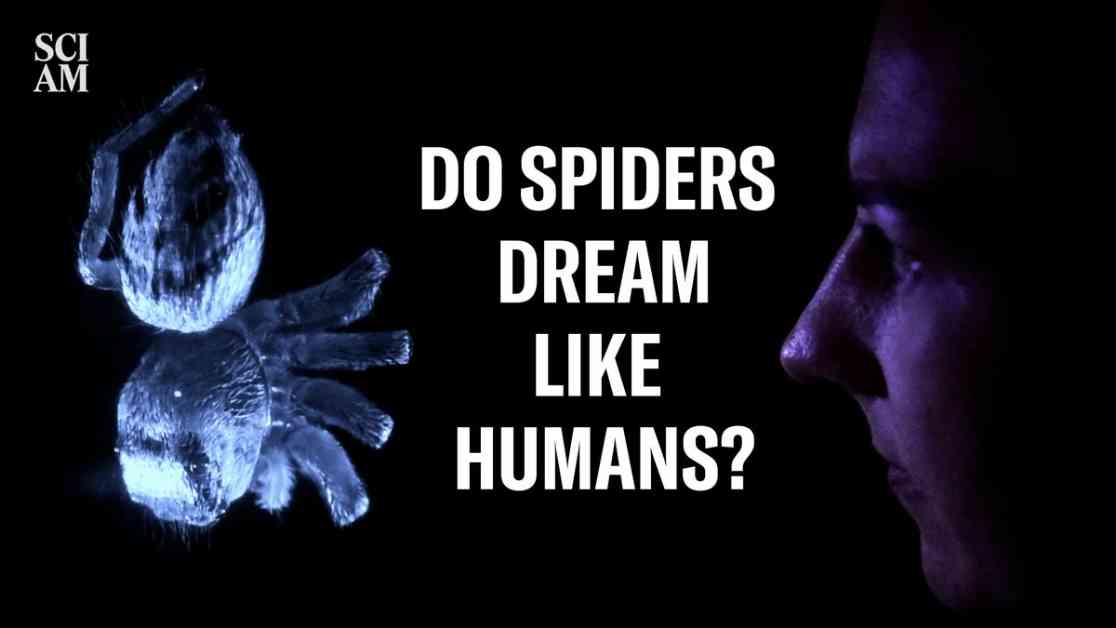Jumping spiders are fascinating creatures with their unique hunting techniques and eight eyes, two of which are large and forward-facing. Daniela Rößler, a behavioral ecologist, has delved into studying spider sleep, a topic that has not been explored extensively in the past. Sleep is essential for learning, memory formation, and overall health benefits, not only in humans but also in animals across different species.
During the pandemic, Rößler discovered Evarcha spiders and observed some interesting behaviors related to sleep. These spiders exhibited twitches during the night, similar to what is seen in dogs and cats during dreaming. Through further research, it was determined that these twitches coincided with movements of the retinas, indicating a possible REM sleep-like state in spiders.
REM sleep, characterized by brain activity and muscle atonia, was previously thought to be exclusive to complex brain mammals. However, the study of spider sleep has revealed the presence of REM-like behaviors in various spider families, highlighting the universality of this sleep stage across different species.
Rößler’s research on spider sleep opens up new avenues for understanding the evolution of sleep and its impact on cognitive functions. By studying spiders like Portia, known for their advanced cognitive abilities and hunting strategies, researchers can gain insights into the relationship between sleep, cognition, and behavior in different species.
While it may be challenging to definitively prove that spiders dream, the observation of REM-like behaviors in spiders suggests that there may be more to their sleep patterns than previously thought. Further experiments on the effects of sleep deprivation on spider behavior could provide valuable information on the importance of sleep in cognitive functions.
The discovery of REM-like behaviors in spiders sheds light on the complexity of sleep across different species and challenges the notion that such phenomena are exclusive to mammals. By exploring the possibility of dreaming in spiders and its potential ecological significance, researchers like Rößler are uncovering new dimensions of animal behavior and cognition that have long been overlooked.




